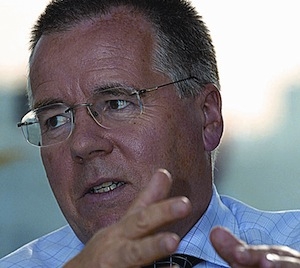The events of the last few weeks have impacted just about every aspect of everyday living – including the world of pensions.
Perhaps unsurprisingly little attention has been paid to four recent announcements which will have a bearing on many clients:
- The new tapered annual allowance rules effective from 2020/21 which mean that many more high earners are likely to be taken out of tapering altogether or see significant increases in their annual allowances.
- The new Lifetime Allowance from 6 April 2020 of £1,073,100.
- Government plans to cover employer auto-enrolment contributions of 3% for all employees who are furloughed under the Coronavirus Job Retention Scheme.
- The Pensions Regulators guidance to trustees of defined benefit schemes that they need not offer cash equivalent transfer values for the next 3 months.
The first two points are really action points for some time during tax year 2020/21. The third point will be a matter more for businesses. The last point may turn out to be a final nail in the DB transfer coffin although I wonder if there are some older individuals out there who are grateful for the flexibility offered by Pension Freedoms given recent investment turmoils.
Access to their pension pots may have staved off a short-term financial disaster in a way that a defined benefit scheme cannot.
This short term need versus long term security debate has been around a long time - ever since income drawdown was first introduced almost 25 years ago – not just 5 years ago as is the case with Pension Freedoms. Options at retirement remain arguably the most complex area of Financial Planning and the recent investment market declines have compounded this.
The dangers of sequencing risk have never been better illustrated than in the last 3 months and in spite of the current pandemic longevity risk remains an issue with 1% extra life expectancy roughly adding 5% to the funds required. My friend Billy Burrows from Better Retirement said in article recently that people approaching retirement face a “financial emergency” and I totally agree.
Sadly there is no simple solution - good quality advice is essential but demand outstrips supply. I am sceptical that Investment Pathways – due to be introduced from August - are going to make a difference (see Financial Planning Today story on Investment Pathways).
Assuming the country returns to some form of normality later this year I think there will be growing calls for a review of the Pension Freedom regime as it seems likely that many pension “pots” will have been drastically depleted. The challenge for the Treasury in any redesign – such as limiting the income that can be taken - will be the potentially negative impact on tax revenues.
As Paul Johnson, director of the Institute for Fiscal Studies, wrote in a recent Times article, “tough economic decisions will litter the road ahead once the crisis is over.”
It seems inevitable that at some point tax rates will rise and tax-breaks will be reduced or removed. That will inevitably lead to more speculation about reducing the favourable tax treatment of pension schemes particularly for high earners. The government’s approach to the Coronavirus pandemic shows that in a time of crisis there can be no “sacred cows”.
All the favourable tax elements of pension schemes – not just tax relief on contributions but tax free cash at retirement and on death are bound to come under scrutiny.
Once again, the dilemma between short term need and the long-term objectives will have to be faced. This comes at a time when the pressure on the social and medical care regimes will have been unequalled – and with no solution even on the table to address the growing long-term care issues, especially the inequity between the most and least deprived areas.
Right now, it is the short term needs of the country that dominate all discussions and debate. But hopefully there will come a time before too long when attention will have to turn to some of the longer-term issues.
As Paul Johnson said in his article: “We will need to be equal to the task of adapting to new realities.” For all involved in the pensions industry – both providers and advisers – that is going to be some challenge.
John Moret is principal of MoretoSIPPs consultancy and one of the UK's most experienced SIPPs experts, commentators and speakers. He has worked for Suffolk Life and several other SIPPs providers. He is chair of advisory business Intelligent Pensions and CX insight business Investor in Customers.

